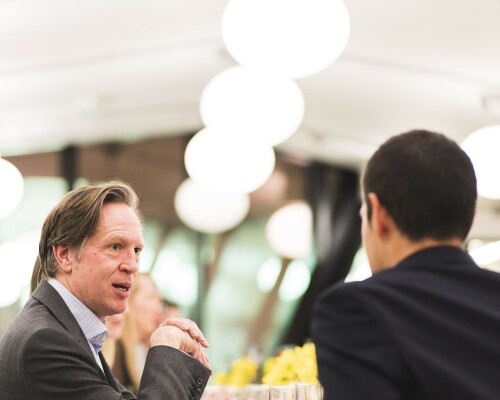Recently, I met with my coaching supervisor - a meeting I always look forward to as it offers me a chance to reflect on and enhance my coaching practice.
In preparing for this, I reviewed my coaching log, noting who I’ve worked with and the number of sessions we’ve had together. I realized that my coaching workload has significantly increased this year, which led me to wonder why.
As Andy Chandler notes in People Management, perhaps coaching has evolved from being a peripheral curiosity to a central part of an organisation’s culture. Or is the growing demand for coaching tied to the increasing pressures on business leaders, driven by challenging market conditions, shifting employee expectations, and the heightened need to deliver results in the right way?
Furthermore, research shows that 60 percent of new managers fail within 24 months. Also CEO median tenure has dropped 20 percent from 2013 (6.0 years in position) to 2022 (4.8 years in position). So, perhaps the rising demand for coaching is due to the need for better preparation for new roles, smoother leadership transitions, and more effective and impactful leadership.
This aligns with many of the conversations I've had with my coaching clients this year. Some clients approach me directly, while others are referred by their organisations - often by line managers or HR representatives. Across these engagements, three key themes have emerged.
Top 3 Leadership Challenges 2025
First, helping clients as they navigate the challenges and opportunities emerging from return to the office policies to reshape the workplace. Since the pandemic, the dynamics of work have fundamentally changed, with a marked increase in remote working and a significant shift in employee expectations.
Second, supporting clients to demonstrate ‘executive presence’. This has long been understood as a mix of gravitas, communication skills, and appearance. However, there has been a noticeable shift in which traits within these categories are now deemed most important. Developing one’s inclusiveness, authenticity and ability to ‘listen to learn’ are in ascendancy.
Third, excelling in your current role doesn't guarantee success in the next. As my clients take on more demanding leadership responsibilities, the expectations of their contributions change. Leadership transitions often require not just a shift in activities, but also in mindset. Many professionals build their reputations on specialised expertise, but as they progress, breadth of knowledge becomes more valuable than depth, which can feel both disorienting and challenging.
In my practice, these three topics regularly arise, and as coaching provides highly personalised development clients can focus on their specific challenges, goals, and strengths, a fantastic option for tailored improvement.
What is a Typical Coaching Process?
Now that you’ve clarified your reasons for seeking coaching, committed to the hard work ahead, and found a coach who suits your needs, what does the process look like?
A typical School for CEOs coaching assignment follows this five-stage approach:
- Planning and contracting – a chemistry meeting between coach and client ensures both parties are clear with objectives and comfortable working together. Coaching objectives are triangulated with a sponsor to ensure clarity around expectations.
- Diagnosis - 360° interviews, a Dimensions self-assessment or 360° diagnostic, psychometrics, and existing data held by the organisation can be used to provide insight to both coach and client.
- Agenda setting - the outputs of the diagnosis and initial briefings are distilled into a focused agenda which usually consists of 4-6 key points, converted into SMART objectives.
- Focused development – the client and coach typically meet once every 4-5 weeks for 1½-2 hours at a time to discuss the coaching agenda. Typically, the coach and client agree to a set of six meetings. During the programme, the coach is accessible to the client for unlimited support via email, phone, etc.
- Review - a formal review at the end of the final session with the organisation’s sponsor reviews the coaching agenda and outcomes.
By working with a coach, leaders can identify areas where they need to grow, set goals, and receive feedback and support to help them enhance their skills, knowledge and performance to reach their full potential.
If you are interested in coaching, reach out for a discovery call with one of the School for CEOs Executive Coaches to discuss your coach readiness and see if we’re the right fit.
Contact us at: https://www.schoolforceos.com/contact-us/





